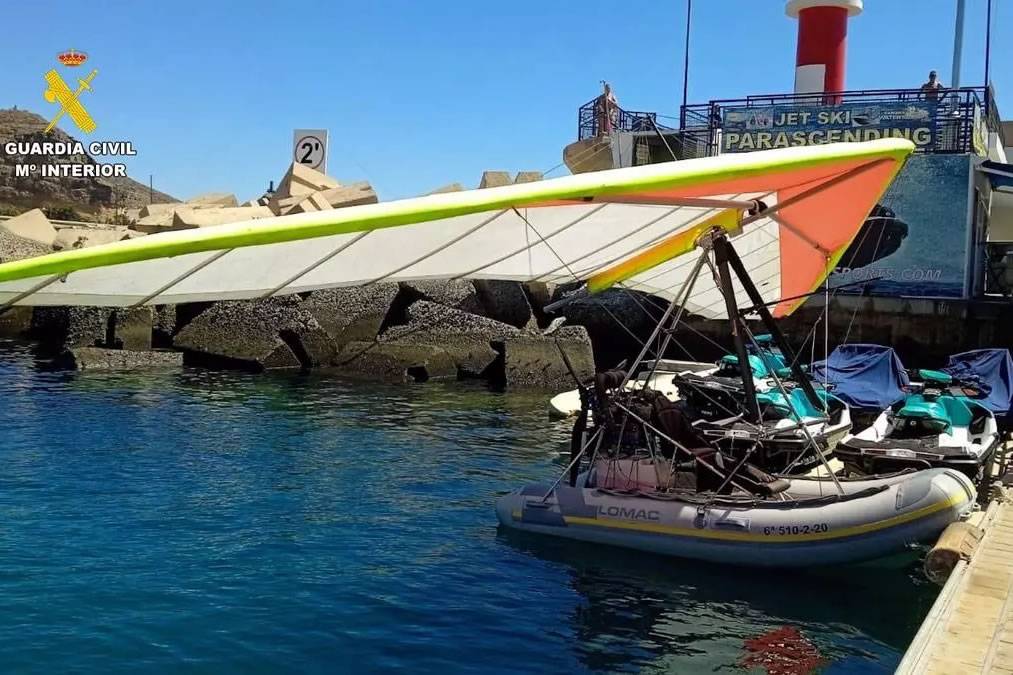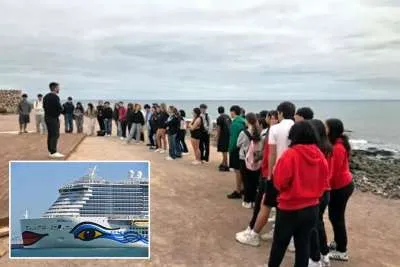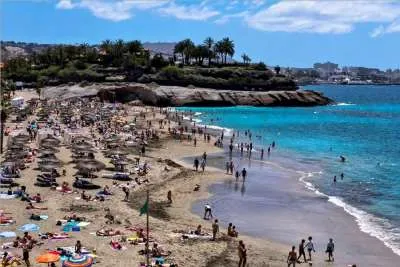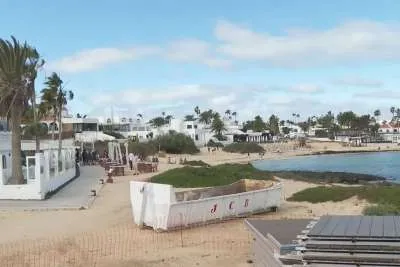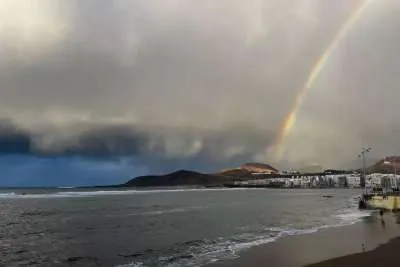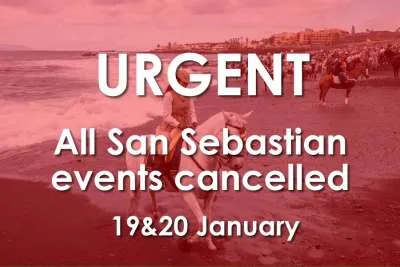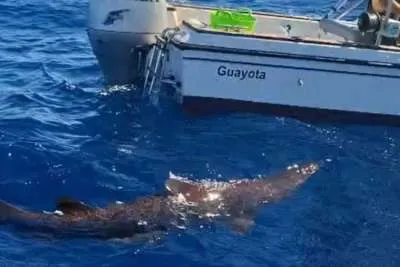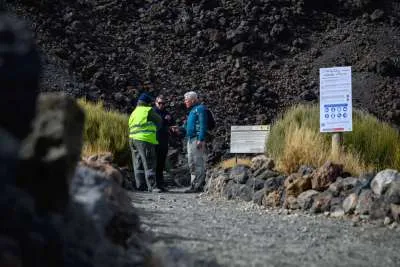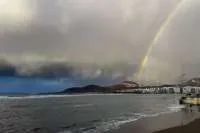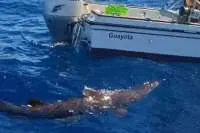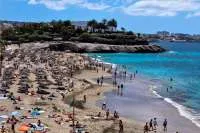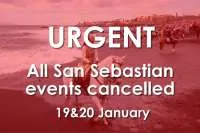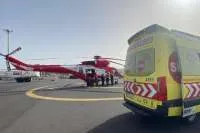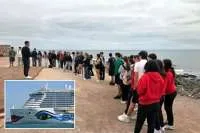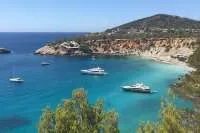Guardia Civil Intercepts a flying boat near Puerto Mogan
- 14-10-2024
- Gran Canaria
- Canarian Weekly
- Photo Credit: Guardia Civil
In an unusual incident, the Guardia Civil intercepted a small Zodiac inflatable boat, fitted with a motorised hang glider, flying over the southern coast of Gran Canaria yesterday (Sunday). The unusual craft was flying at an altitude between 50 and 100 metres and moving at an estimated speed of around 55 km/h, according to radar readings from a nearby patrol boat.
The inflatable boat, approximately 3 metres in length, was equipped with an engine that allowed it to fly. Guardia Civil agents from the Provincial Maritime Service, spotted the flying boat near Puerto de Mogán, when it turned towards Arguineguín, and eventually descended to land on the water about 100 metres from the entrance to Puerto Rico’s Port Escala.
Upon landing, the patrol boat approached the craft, identifying its two occupants, both of whom were equipped with helmets, seatbelts, and life jackets. The two sat in tandem on seats arranged lengthwise along the inflatable base of the boat.
Upon inspection, authorities discovered that the passenger was a paying customer participating in a commercial service offered by a local company, which specialises in providing this type of aerial experience. However, the documentation provided for the craft showed it was classified as a motorised hang glider intended for rental without a pilot, a service different from what was being conducted at the time of the interception. Furthermore, the activity did not comply with the regulations governing Maritime Transport for Tourism.
In terms of safety, the craft used an unauthorised surface as a temporary take-off and landing area, which had not been approved by the relevant authorities.
Although the operator presented various documents related to both aeronautical and maritime regulations, they were not sufficient on their own to validate the combined operation of the flying Zodiac. The craft lacked the necessary certifications to operate legally in this manner.
Due to these violations, the matter was reported to the Spanish Aviation Safety Agency (AESA), the Maritime Captaincy of Las Palmas, and the Government of the Canary Islands. Pending further investigation, the Maritime Captaincy took precautionary measures by sealing the craft, a task carried out by the Provincial Maritime Service.
This unusual event highlights the increasing need for clear regulatory frameworks as unconventional modes of transport and tourism continue to emerge.


